How to Install Oracle Java on Ubuntu Linux
Optional: How to Enable Oracle Java on Web Browser
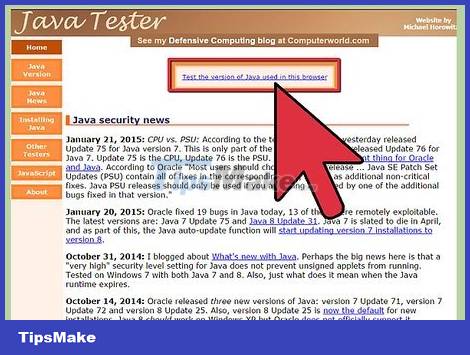
To enable the Java plug-in on a web browser, you must create a symbolic link from the browser's plug-in directory to the location of the Java plug-in in the Oracle Java partition.
Important Note: You should be careful when activating Oracle Java 7 in your web browser because of the fact that Java has a multitude of security holes and exploits. More importantly, when activating Oracle Java 7 on a web browser, if there is a security hole or exploit, this is a weak point for bad guys to infiltrate and harm your system. For more information about Java vulnerabilities and exploits, visit the website: Java Tester
Google Chrome
Oracle Java 32-bit Tutorial:
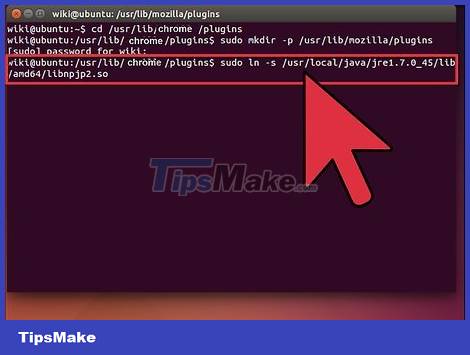
Execute the following command.
Type/Copy/Paste: sudo mkdir -p /opt/google/chrome/plugins
Here is the command to create the directory /opt/google/chrome/plugins
Type/Copy/Paste: cd /opt/google/chrome/plugins
This is the command that takes you to the google chrome plugin folder, remember to go to this folder before creating the icon link
Type/Copy/Paste: sudo ln -s /usr/local/java/jre1.7.0_45/lib/i386/libnpjp2.so
This is the command to create a symbolic link from the Java JRE( Java Runtime Environment ) plugin libnpjp2.so to the Google Chrome browser.
Oracle Java 64-bit Tutorial:
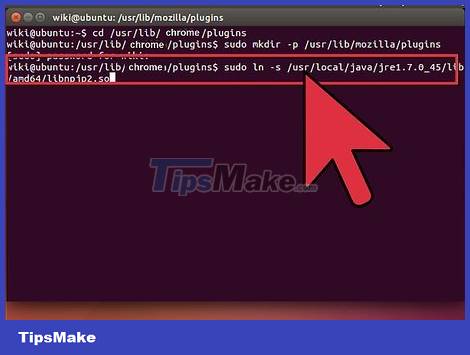
Execute the following command.
Type/Copy/Paste: sudo mkdir -p /opt/google/chrome/plugins
Here is the command to create the directory /opt/google/chrome/plugins
Type/Copy/Paste: cd /opt/google/chrome/plugins
This is the command that takes you into the google chrome plugin directory, make sure you go into the directory before creating the icon link.
Type/Copy/Paste: sudo ln -s /usr/local/java/jre1.7.0_45/lib/amd64/libnpjp2.so
This is the command to create a symbolic link from the Java JRE (Java Runtime Environment) plugin libnpjp2.so to the Google Chrome browser.
Remind:

Note: When executing the above commands, sometimes you get the following message:
ln: creating symbolic link `./libnpjp2.so': File exists
To fix this problem, simply remove the previous link with the following command:
Type/Copy/Paste:cd /opt/google/chrome/plugins
Type/Copy/Paste:sudo rm -rf libnpjp2.so
Make sure you are in the /opt/google/chrome/plugins directory before executing the command.

Restart the web browser and go to Java Tester to check if Java is working or not.
Mozilla Firefox
Oracle Java 32-bit Tutorial:
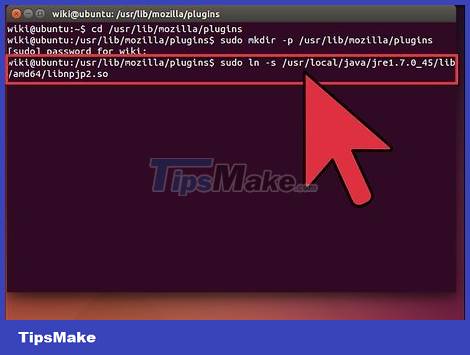
Execute the following command.
Type/Copy/Paste: cd /usr/lib/mozilla/plugins
This is the command that takes you to the plugin directory /usr/lib/mozilla/plugins, create this directory if not already there.
Type/Copy/Paste: sudo mkdir -p /usr/lib/mozilla/plugins
Here is the command to create the /usr/lib/mozilla/plugins directory, make sure you are in the directory before creating the symbolic link.
Type/Copy/Paste: sudo ln -s /usr/local/java/jre1.7.0_45/lib/i386/libnpjp2.so
This is the command to create a symbolic link from the Java JRE(Java Runtime Environment) plugin libnpjp2.so to the Mozilla Firefox web browser.
Oracle Java 64-bit Tutorial:

Execute the following command:
Type/Copy/Paste: cd /usr/lib/mozilla/plugins
This is the command that takes you to the /usr/lib/mozilla/plugins directory, create this directory if not already there.
Type/Copy/Paste: sudo mkdir -p /usr/lib/mozilla/plugins
Here is the command to create the /usr/lib/mozilla/plugins directory, make sure you are in the directory before creating the symbolic link.
Type/Copy/Paste: sudo ln -s /usr/local/java/jre1.7.0_45/lib/amd64/libnpjp2.so
This is the command to create a symbolic link from the Java JRE(Java Runtime Environment) plugin libnpjp2.so to the Mozilla Firefox web browser.
Remind:
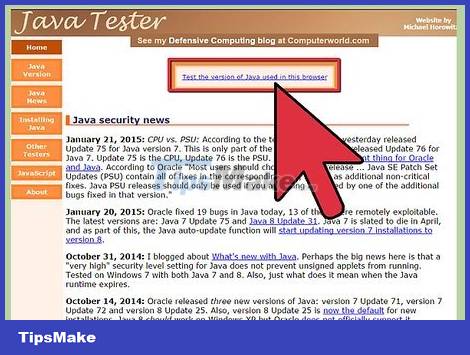
Note: Sometimes you execute the above commands and get the message:
ln: creating symbolic link `./libnpjp2.so': File exists
To fix this problem, simply remove the previous link with the following command:
Type/Copy/Paste: cd /usr/lib/mozilla/plugins
Type/Copy/Paste: sudo rm -rf libnpjp2.so
Make sure you are in the /usr/lib/mozilla/plugins directory before executing the command.
Restart the web browser and visit the Java Tester page to check if Java is already working in the browser.